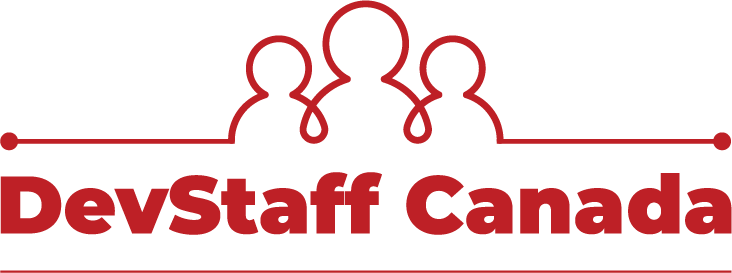1. How to Source the Best Technical Candidates

Tap into your network to see if anyone has worked with or come across your candidate prior to their interview. A candidate’s references are often strategically picked and may not provide you with an objective personal opinion. Using your own network or other tech professionals in the same industry can provide you valuable feedback on the candidate’s technical and soft skills.
Take the time to explore digital channels as well. Social networks for professionals such as LinkedIn and online communities can provide information on a candidate’s background and how they work with their peers. For candidate information that can’t be found through networking, pre-screen the candidate for skills that match the position you’re looking to fill. A simple pre-screen to use is an online assessment tool. By looking at relevant questions as it relates to company culture, for example, hiring managers can assess a candidate based on their personality traits, before the day of the interview.
By changing the details in your job postings, you will likely see fewer applications. However, the candidates that do apply will be highly qualified. Be specific in the information you add to the job postings and add SEO value to help the right candidate find you.

2. Involve Employees in the Hiring Process
Don’t just rely on your hiring manager for details, involve the entire team to make the hiring process more collaborative. Ask them what skills would benefit their success on the projects they’re working on and for the department as a whole. Ask what type of personality traits would best complement the team. You can even ask them about their thoughts on hiring process and note any suggestions for improvement. The inside information you’ll receive from them will be invaluable for the interview, as it’s them who will be working with the new hire directly on a daily basis, so it’s important to get it right.
There will also be added benefits to the employees to help improve company culture:
- It allows employees to be aligned with success for the company. They will be evaluating their own core values when determining if a candidate will succeed in the company, and they’ll be more committed to helping the hire they’ve chosen to succeed.
- It creates a rapport for the onboarding process. Employees will be able to interact with new hires before the first day, even if it’s a simple meeting versus being part of the actual interview itself. The familiarity created during the pre-hiring process will allow comfort for both the employees and the new potential hire.
- Involving employees makes them feel valued, and shows that their views and experiences matter. They may also have ideas based on their own experiences with the hiring and onboarding process. It also makes expectations clear that while they have a strong voice in the matter, the decision will still be left to the hiring manager.
Pro Tip: Try starting an employee referral program to provide you with more quality candidates to choose from, and allows employees to be a valued part of the process. Not sure how? Learn more about how to set one up in blog on Creative Recruitment Ideas.

3. Make the Interview a Conversation
Engage with your candidate instead of sitting across the table with a laptop and a set of predetermined interview questions. Instead, set the expectation on how the interview will take place and lead the interview towards a conversational approach. A great conversation-starter is to ask the candidate what they feel motivated by and why. You’ll be able to clearly see which candidates have passion, drive, self-awareness and long-term goals. You’ll also be able to ensure that they’re aligned with the company culture. The hiring manager should come off as being friendly, positive, and human. Take time to show each potential new hire the positive work environment that’s been established, and that their contributions at the workplace will be valued and appreciated. Small talk may be uncomfortable at times, but it can help to ease the nerves of the candidate and build a connection before the interview questions start happening. Asking simple questions and getting to know the candidate on a personal level can also help to see if their behaviors and attitudes would be a fit for the team and across the company.
4. Ask Specific Technical Questions

To secure top technical talent, you need to get to know them during the interview. The best way to get candidates to open up is to ask specific and strategic questions about their previous job responsibilities and encourage them to speak about their personality. Here are three strategic questions you should be asking in every technical interview:
Figure out if the candidate has first-hand knowledge and experience.
It’s imperative to identify if the candidate has practical experience. You also want to ensure that the candidate has specific experience as it relates to the position.
Ask the candidate: Can you walk me through the situation, tasks, actions taken, and results of your last technical project?
Determine whether the candidate is forward-thinking, intelligent, and collaborative.
Listen to learn how they describe what they do and see how that could fit with what your company does. A successful project usually relies on teamwork, so also be sure that they can work well with others in order to meet team goals.
Ask the Candidate: Can you tell me about a time where you had to be creative in maintaining a positive working relationship with an internal or external customer?
Find out if they understand technology development in general.
The best candidates will understand technology from initial concept to ideas for the future. Look for a candidate that’s always thinking ahead but able to work in the moment too, and understands how their work can impact the world.
Ask the Candidate: What are you most excited about with the way technology will continue to change in the future?

A successful technical interview requires screening in advance, involving employees, having conversational elements, and asking strategic questions. Use our tips to ensure that your potential new hire is the best fit for your team and your company, not just for the role itself.

Let our team of recruitment professionals match you with your next opportunity. Take advantage of our resources and network. They were designed to help you succeed.





